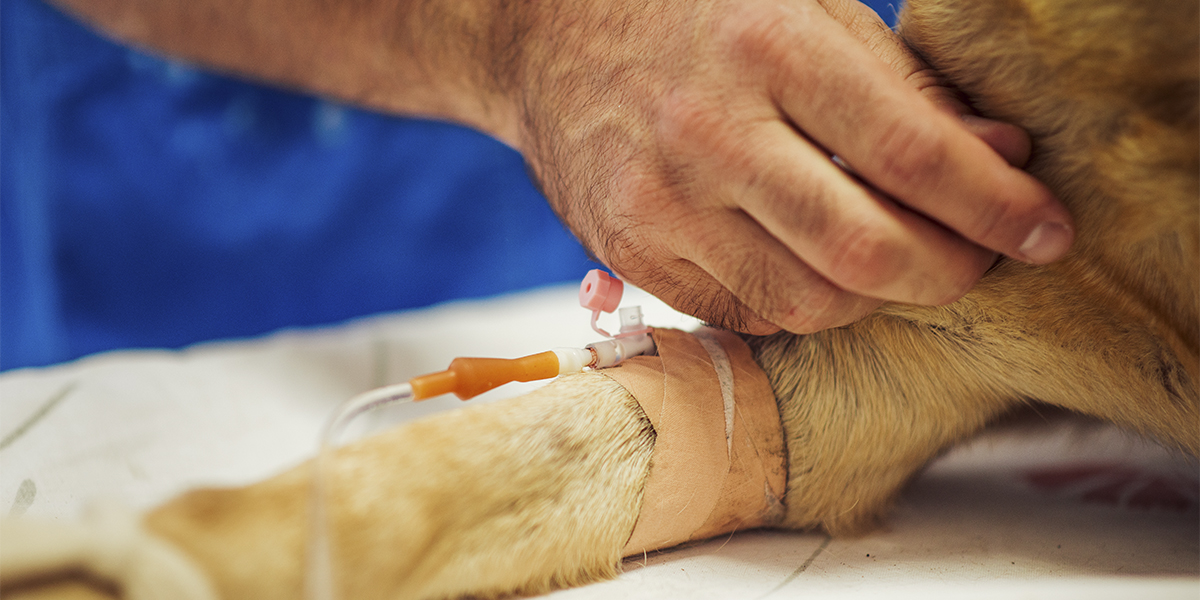
Sepsis is an infection which overwhelms the body, resulting in severe inflammation. Without treatment, it can escalate into Septic Shock, causing multi-organ failure (kidneys, lungs, liver).
This condition normally occurs when a severe infection is not treated adequately or timely.
How Pets Get Sepsis and Septic Shock
Examples of situations that can evolve into sepsis, and then Septic Shock are:
- – Ruptured intestines (from intestinal cancer or a foreign body obstruction)
- – Kidney infection (e.g., pyelonephritis)
- – Uterine infection in intact females (pyometra)
- – Prostatic infection in male dogs (e.g., prostatic abscess)
- – Severely infected wound (e.g., abscess or bite wound)
- – Pneumonia
- – Bacterial infection in the vertebrae (e.g., diskospondylitis)
- – Joint infection
- – Bacterial infection on the heart valves (e.g., bacterial endocarditis)
- – Blood infection
- – Pancreatic infection (e.g., pancreatitis or pancreatic abscess)
- – Ruptured organs (e.g., a ruptured stomach secondary to gastric dilatation volvulus, a ruptured bladder secondary to bladder stones, or a ruptured gall bladder secondary to gall bladder stones)
If you suspect that your pet is experiencing sepsis or septic shock, get help immediately:

The Title
Examples of situations that can evolve into sepsis, and then Septic Shock are:
- – Ruptured intestines (from intestinal cancer or a foreign body obstruction)
- – Kidney infection (e.g., pyelonephritis)
- – Uterine infection in intact females (pyometra)
- – Prostatic infection in male dogs (e.g., prostatic abscess)
- – Severely infected wound (e.g., abscess or bite wound)
- – Pneumonia
- – Bacterial infection in the vertebrae (e.g., diskospondylitis)
- – Joint infection
- – Bacterial infection on the heart valves (e.g., bacterial endocarditis)
- – Blood infection
- – Pancreatic infection (e.g., pancreatitis or pancreatic abscess)
- – Ruptured organs (e.g., a ruptured stomach secondary to gastric dilatation volvulus, a ruptured bladder secondary to bladder stones, or a ruptured gall bladder secondary to gall bladder stones)
Symptoms of Sepsis
- – Not eating
- – Vomiting
- – Drooling
- – An elevated heart rate
- – Dark red gums
- – Pale, pink gums
- – Dehydration
- – Panting
- – Difficulty breathing
- – Weakness or lethargy
- – Abdominal pain
- – Diarrhea
- – Straining to urinate or defecate
- – Collapse
- – Excessive licking of the rear end
- – A foul odor from the rear end
- – Vaginal discharge
- – Fever
- – A distended abdomen
- – Death, even with treatment